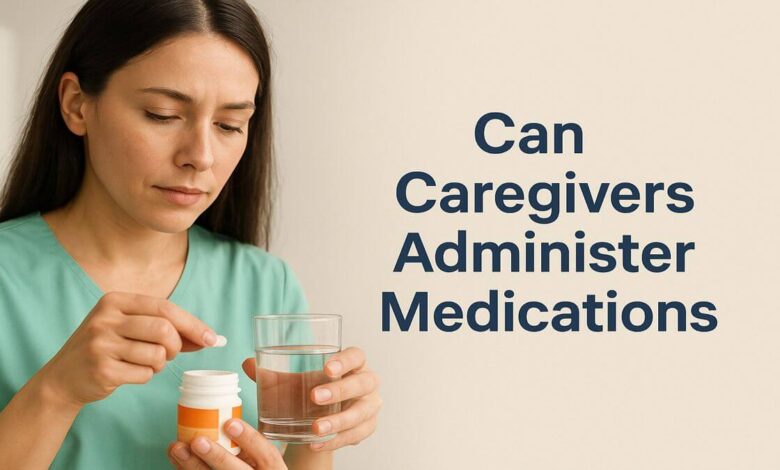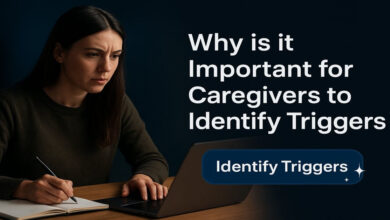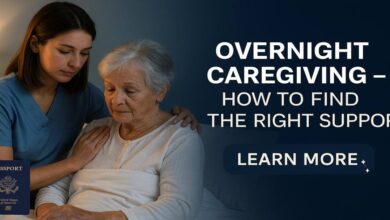
Can Caregivers Administer Medications – A Guide
One of the most critical responsibilities in home care is ensuring that medications are taken correctly and safely. For many families, the question arises: Can caregivers administer medications? The answer is yes—but it depends on several important factors, including legal requirements, training, and the type of care involved.
This article explains when caregivers can administer medications, what they are allowed to do, and how to keep your loved one safe.
Can a Caregiver Administer Medication?
Whether a caregiver is legally allowed to administer medications depends on:
- The laws and regulations of the specific state or province
- The caregiver’s level of training and certification
- The employer’s policies if the caregiver is employed through an agency
- The type of medication being administered
In many regions, non-medical caregivers—such as personal support workers or home health aides without a nursing license—can assist with medications only under strict conditions.
Licensed professionals, such as registered nurses (RNs) or licensed practical nurses (LPNs), generally have broader authority to administer medications, including injections and more complex procedures.
Check Also: Are Teachers Caregivers – Complete Guide
Types of Medications Caregivers May Assist With:
Depending on regulations and training, caregivers may be allowed to:
- Remind clients to take their medications
- Hand medications to clients from properly labeled containers
- Help clients open medication bottles or blister packs
- Apply topical ointments or creams
- Assist with inhalers, nasal sprays, or eye drops
However, caregivers who are not medically licensed typically cannot make decisions about dosages or administer certain types of medications, especially those requiring injections or complex medical procedures.
Limits on What Caregivers Can Do:
Most laws prohibit non-licensed caregivers from:
- Administering injections (except in some home care situations with proper training)
- Measuring and preparing liquid medications unless pre-dosed by a pharmacist
- Administering medications through feeding tubes unless trained and authorized
- Changing medication dosages or schedules without medical direction
Always check your local regulations and ensure your caregiver’s responsibilities align with legal requirements.
Training and Certification Requirements:
Many regions require caregivers involved in medication assistance to complete:
- Medication administration training programs
- First aid and CPR certification
- Competency assessments or supervised practice
If hiring through an agency, ask whether the caregiver has specific training in safe medication administration.
Tips:
To protect your loved one’s health:
- Keep an updated list of all medications, dosages, and schedules
- Use pill organizers to reduce confusion and errors
- Store medications as directed, including refrigeration if needed
- Monitor for side effects or adverse reactions and report them to a healthcare provider
- Never change dosages without a doctor’s approval
Good communication between the caregiver, family, and healthcare team is key to safe medication management.
When to Contact a Healthcare Professional:
Reach out to a nurse, doctor, or pharmacist if:
- A client refuses to take medication
- There are changes in symptoms or health status
- There are signs of an allergic reaction or serious side effects
- Medication instructions are unclear or confusing
When in doubt, seek professional guidance rather than taking risks.
Final Thoughts:
So, can caregivers administer medications? In many cases, they can—but only within certain boundaries set by law and training. While caregivers often help ensure that individuals take their medications safely, they should never go beyond their authorized scope of practice.
If you’re hiring a caregiver, discuss your loved one’s medication needs clearly, and confirm the caregiver’s qualifications and training to ensure safe, legal, and effective care.
Frequently Asked Questions:
Do caregivers need special training to administer medications?
Yes. In many places, caregivers must complete medication administration training and demonstrate competency. This ensures safety and compliance with regulations.
Are caregivers allowed to give medications?
It depends on the caregiver’s role, training, and local laws. Licensed or certified caregivers (like nurses or certified nursing assistants) can administer medications. Unlicensed caregivers may be limited to assisting with self-administered medication rather than giving it directly.
Can family caregivers administer medications?
Family caregivers often administer medications at home, but they should follow doctors’ instructions carefully and know how to recognize side effects or emergencies.




